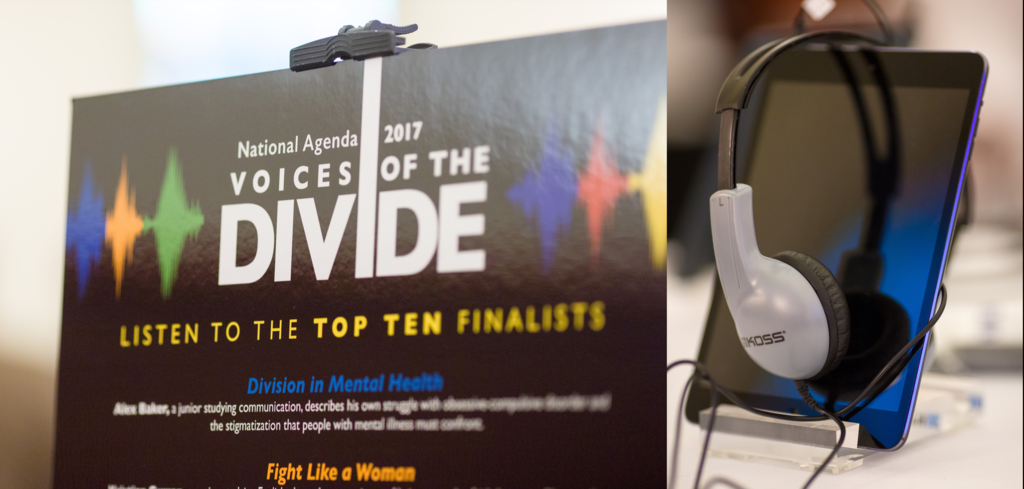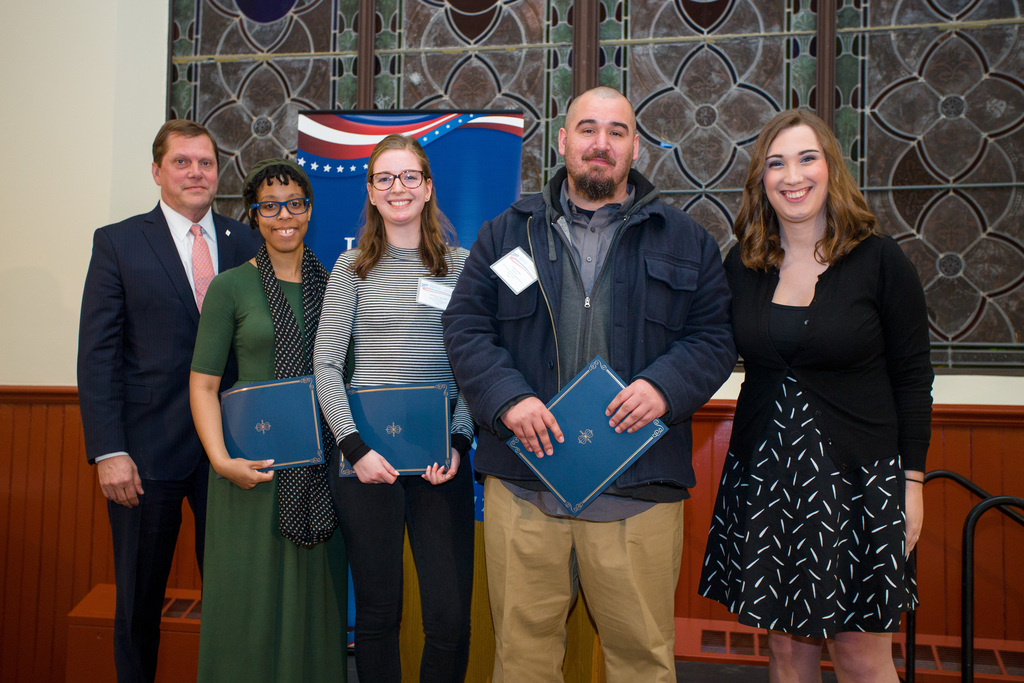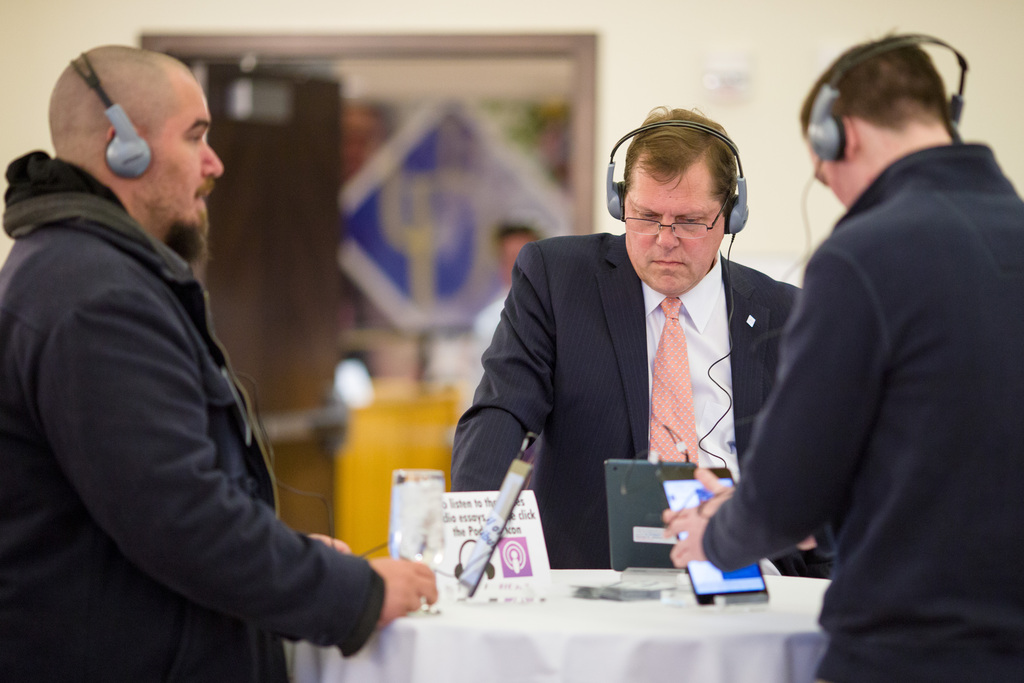Speaking Out Loud
Students lay bare personal and emotional stories

By Anne Grae Martin, Voices Producer
Photos by Kevin Quinlan
See the results and listen to the essays on the Voices results story.
MARCH 5, 2018 – Every year, the University of Delaware’s Center for Political Communication brings speakers to campus to talk about important issues in society, but last fall the CPC turned the mic toward the students themselves with the Voices of the Divide Audio Essay Contest.
Born from the rising social and political divides that exist today, the project allowed students to create audio essays about the individual impact of societal challenges. The contest participants were given two to four minutes to tell a succinct story without sound effects, background music, or other voices. Their stories were laid bare, short and without frills, but leaving impactful impressions on the listeners. Students ranging from freshmen to Ph.D. candidates took time to craft, write, and record personal essays that illuminated the tapestry of experiences and backgrounds that have all come together at the University of Delaware.

Highlighting the zeitgeist of female empowerment, Madeline Merritts, a junior studying media communication, wrote about the fear she lives with simply by virtue of being a woman. Merritts won second place for her essay, “Afraid”:
“Some amazing, strong women have taken stands against verbal sexual abuse by speaking about the subject or making videos about how real it is. But, sadly, I don’t see much of a change in society. We still see victim blaming or hear the phrase “boys will be boys? and I don’t see that ending any time soon.”
A judge commented, “I am very impressed with this essay, particularly since it concludes in under 3 minutes. It packs a lot into a brief essay, and you can relate to the speaker.” Merritts’ essay got right to the heart of a problem that almost half of the population has dealt with at some point.
First-prize winner Oscar de Paz wrote about growing up in Chicago with his essay, “After Dinner.” By highlighting one experience when de Paz was 13 years old, mistaken for a drug dealer while taking out the garbage for his Lilita, de Paz immerses the listener in his whole adolescent world. The reader can taste “los tomatillos for salsa verde and frijoles for dinner? and hear Lilita ‘sweeping el comedor y la cocina before [de Paz] was even up getting ready for school in the morning.”
De Paz said that when he spoke to his father about his brief encounter with the police, his father was confused why he”d chosen this topic for his audio essay. “To move it beyond the family context, I think it struck him as interesting that I”d be willing to talk about it,” de Paz said in an interview.
But de Paz wanted to get to the core of how he thinks he was able to become a first-generation college student now pursuing a Ph.D. “Why is it that I”m sitting here as a Ph.D. student with the opportunities that I have, while there are others who weren’t so privileged? That need to “work through and write about it? was one of the driving factors for de Paz.

Jessica Jenkins, a junior studying English, said, “There’s definitely something really personal about hearing your own voice saying those words out loud. There’s something powerful about speaking it instead of saying it or thinking it in your head.”
While the experience of recording personal essays was impactful for many contest entrants, the experience of listening to other essays was even more so. Jenkins’ class used the project as a learning tool. From this, Jenkins was able to hear others? essays as well. “Hearing everyone speak out loud about the things, the issues, and problems that they had faced, that they had been writing about, was really powerful.”
Merritts also had the contest incorporated into her class, allowing her to hear others? essays. She felt that the essays told ‘such different experiences that you would never have in your life.”
Daniel Lanier, a student in UD’s Career and Life Studies Certificate (CLSC) Program for students with intellectual disabilities, appreciated the chance to have a platform to voice his opinion. Lanier’s essay touched on how he has felt excluded because of his disability as well as race. “I thought what it meant to me was that it gave me a chance to really speak out on the things that were going on from personal experience.”
Coming up … Students who want to share their experiences will have another chance to do so with “Voices Matter,” the second annual Voices of the Divide contest happening in 2018-19. Providing a platform for these stories may not fill the divide, but it does provide an opportunity to bridge the gap.
